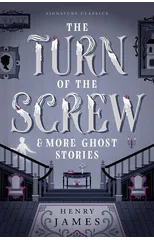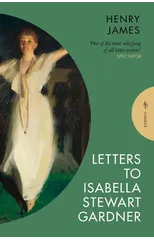On Writers and Writing
Selected Essays
(Autor) Henry JamesA new selection of Henry James's essays on the art of writing, from his famous essay "The Art of Fiction" to pieces on George Eliot, Ivan Turgenev, Honoré de Balzac, and others. Witty, erudite, and passionate, James's essays are a delight for any lover of the written word. "James knew how to be generous without sacrificing the truth. What lends dignity and breadth to [his essays] above their directness and simplicity... is the exploratory reach of James's mind." —Leon Edel Henry James, the master novelist, started his literary career as a brash, often blistering reviewer, unafraid to skewer eminences like Charles Dickens and George Eliot, and continued to be a working critic for the rest of his life, driven by an unflagging desire to know what makes fiction work. James's critical essays represent an ongoing appreciation of the difficult art of the novel, searching in their consideration of story, character, and style. They also stand out as splendid contributions to the art of the essay, brilliantly argued, rich with metaphor, witty, unfailingly personal. In this new selection of James's critical essays, Michael Gorra—the author of Portrait of a Novel: Henry James and the Making of an American Masterpiece—draws on all the different periods of James's writing life, from his fledgling reviews in The Nation to his mature considerations of Gustave Flaubert, Honoré de Balzac, and William Shakespeare's The Tempest. As an overture, there is "The Art of Fiction," in which James insists that the key ingredient of fiction is not to be moral or otherwise improving but simply "to be interesting"; for a coda, "Mr. and Mrs. James T. Fields," a memoir of the literary New England of his boyhood. Overall, On Writers and Writing can be read as an artistic autobiography. Here we see James revisiting and revising his opinions on fiction, that exercise of heart and mind whose very meaning, he insists throughout, is freedom.
Henry James
Henry James was an American novelist and critic known for his psychological realism and exploration of the complexities of human relationships. His most notable works include "The Portrait of a Lady," "The Turn of the Screw," and "The Wings of the Dove." James' writing style is characterized by intricate prose, detailed character development, and nuanced exploration of social conventions and moral dilemmas.
James is considered one of the most important figures in 19th-century American literature, often credited with shaping the modern novel through his innovative narrative techniques and deep psychological insight. His impact on the literary genre of the novel is profound, with many critics and writers citing him as a major influence on their work.
One of Henry James' most famous works is "The Turn of the Screw," a ghost story that explores the themes of innocence, corruption, and the supernatural. The novella is widely regarded as a masterpiece of psychological horror and has been adapted into various film and stage adaptations. Henry James' contributions to literature continue to be celebrated and studied for their profound insights into the human condition and the complexities of human experience.




